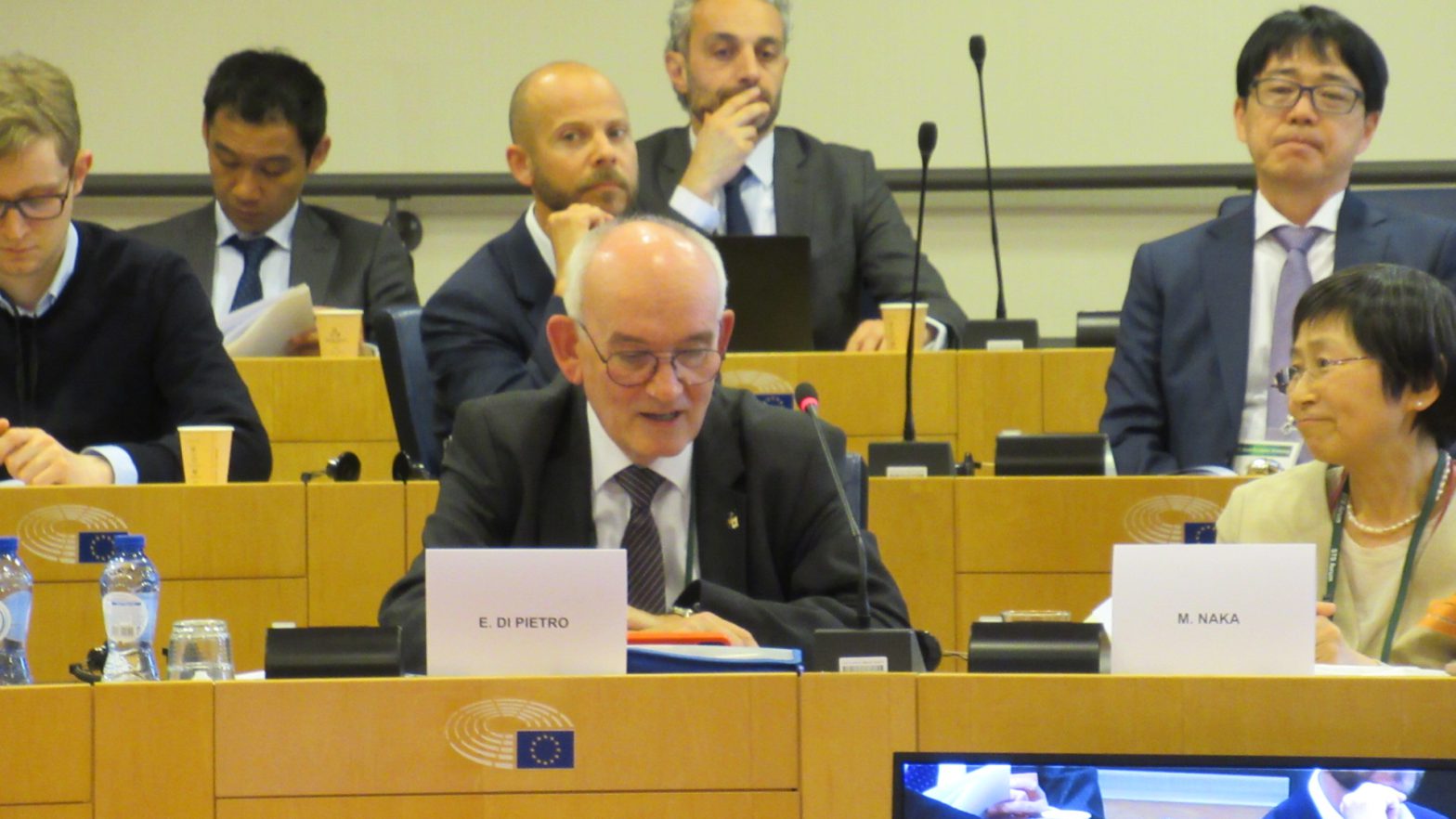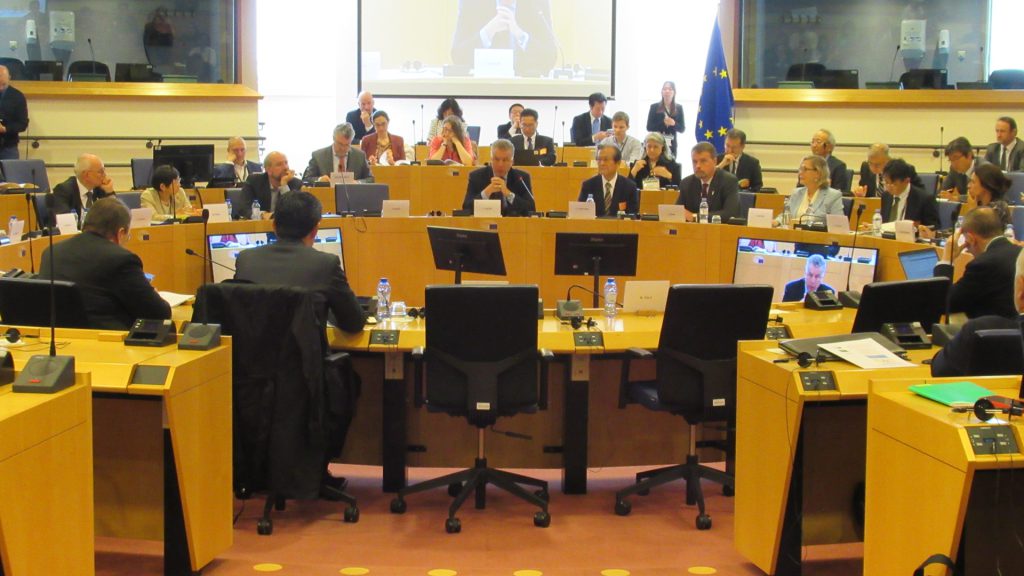Why international collaboration in research matters

Enrico Di Pietro, F4E, during his opening statement at the joint European workshop of the European Parliament’s STOA and STS forum, Brussels, May 2023. ©EP
An event organised by the European Parliament’s Panel for the Future of Science and Technology (STOA) together with the Science and Technology in Society (STS) forum, brought together policy makers, scientists, practitioners, and representatives of research organisations to debate the future of international collaboration in a fragmented world. Structured along two sessions, and moderated by Christian Ehler, MEP and STOA Chair, Ivars Ijabs, MEP, STOA Vice-Chair, and Pernille Weiss, MEP and STOA Panel member, panels of distinguished speakers tried to explain how we can promote research cooperation and what can we learn from successful examples.

In setting the tone of the event, the importance of science diplomacy was highlighted by Signe Ratso, Deputy Director-General of the European Commission’s Directorate General for Research and Innovation. Science can be a bridge and facilitator to engage with different countries within the same continent or other regions of the world. The need for cooperation is clear given the fact that we are all increasingly interconnected, facing global concerns. The political rifts, however, in combination with the race of who will get there first, can pose some risks. Making sense of these factors is important in articulating a policy which enables collaboration, under certain conditions, and prepares us better for the future. Horizon Europe, the EU’s key funding scheme for research and innovation with a budget of 95.5 billion EUR, counts more than 60 Association Agreements signed with various countries, offering the closest form of collaboration. Japan being one of them, enjoys this privileged status in different fields, with fusion being one of them.
Our colleague Enrico Di Pietro, was invited to share his expertise on the matter, counting years of experience in the field of international science collaboration in fusion via the ITER project and JT-60SA. In his presentation he highlighted the merits of joining forces with other countries in harvesting expertise and building a community that can go beyond the state of art. He did, however, stress some of the complexities which have to do with cultural patterns, way of doing things, the risk of competition and fragmentation. To respond to these challenges, he elaborated on the collaboration of the seven ITER parties, illustrating how from a conceptual design for the biggest fusion device, the setting of different agencies came to life – similar to F4E—in order to deliver their respective share of components. The case of JT-60SA, stemming from an agreement signed between Europe and Japan, was also discussed at length. This fusion experimental device, expected to start operations towards the end of this year, was branded as a brilliant example of collaboration in the field. Its success lies in fostering a one-team spirit, building continuously trust, and rolling out a common modus operandi. For Di Pietro those are the main ingredients that can unite partners around one goal and inspire them to give their best shot.
To view the recording of the event click here, and feel free to navigate to our sections describing Europe’s contribution to ITER and our involvement in JT-60SA.